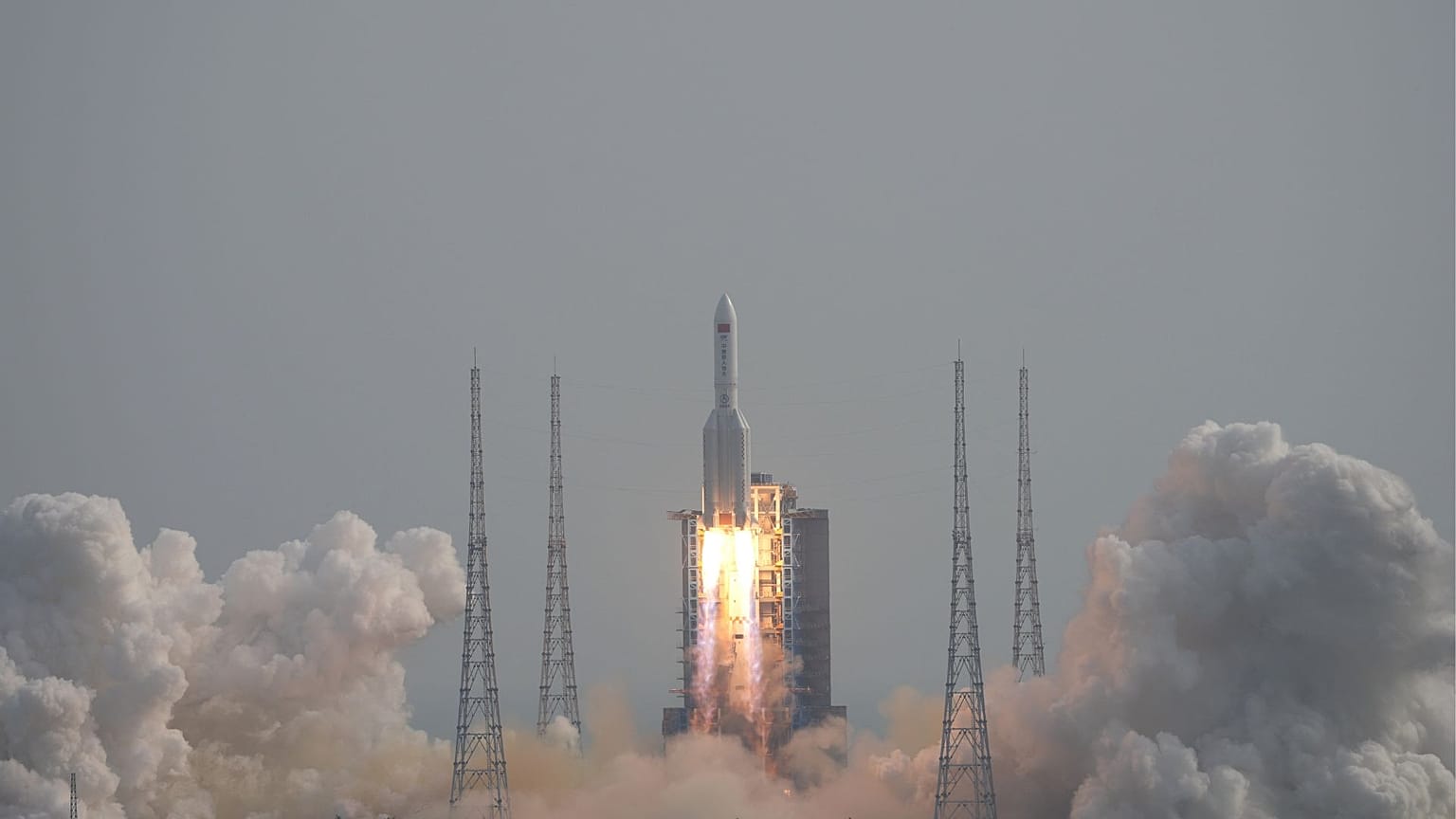Fearing that the falling debris posed a threat to flights, Spanish air control shut the airspace over the northeastern region of Catalonia and three other regions.
Spain briefly closed part of its airspace on Friday after a massive chunk of a Chinese rocket plummeted to earth.
 ADVERTISEMENT
ADVERTISEMENT
 ADVERTISEMENT
ADVERTISEMENT
The Long March 5B (CZ-5B) rocket - which blasted off from China four days ago - started disintegrating as it re-entered Earth’s atmosphere this morning.
Fearing that the falling debris posed a threat to flights, Spanish air control shut the airspace over the northeastern region of Catalonia and three other regions.
"Due to the risk associated with the passage of the space object CZ-5B through the Spanish airspace, flights have been totally restricted from 9:38 a.m. to 10:18 a.m. (0838-0918 GMT) in Catalonia and other communities," Catalonia's emergency service said on its Twitter account.
According to Spanish airport operator Aena, 300 flights out of the 5,484 scheduled to operate on Friday in its 46 Spanish airports were delayed due to air traffic restrictions.
What happened to the Chinese rocket that fell to Earth?
Remnants from the Long March 5B re-entered the atmosphere at 6:08 p.m. Beijing time (1008 GMT). The core stage of the rocket was 30 metres long and weighed around 20 tonnes.
Most of the debris burned up, but some touched down in the Pacific Ocean around 1,000 kilometres southwest of Acapulco in Mexico.
The rocket blasted off on 31 October from southern China to deliver the last module of the Chinese space station.
It was the fourth flight of the Long March 5B since its maiden launch in May 2020.
On its first deployment, fragments of the rocket's boosters landed on the Ivory Coast, damaging several buildings in the West African nation, though no injuries were reported.
Debris from the second flight landed harmlessly in the Indian Ocean, while remnants from the third fell into the Sulu Sea in the Philippines.
A rocket's re-entry into the atmosphere is a common international practice, Zhao Lijian, a spokesperson at the Chinese foreign ministry, said.
Zhao said the probability of causing harm to aviation activities and the ground was "extremely low".

















